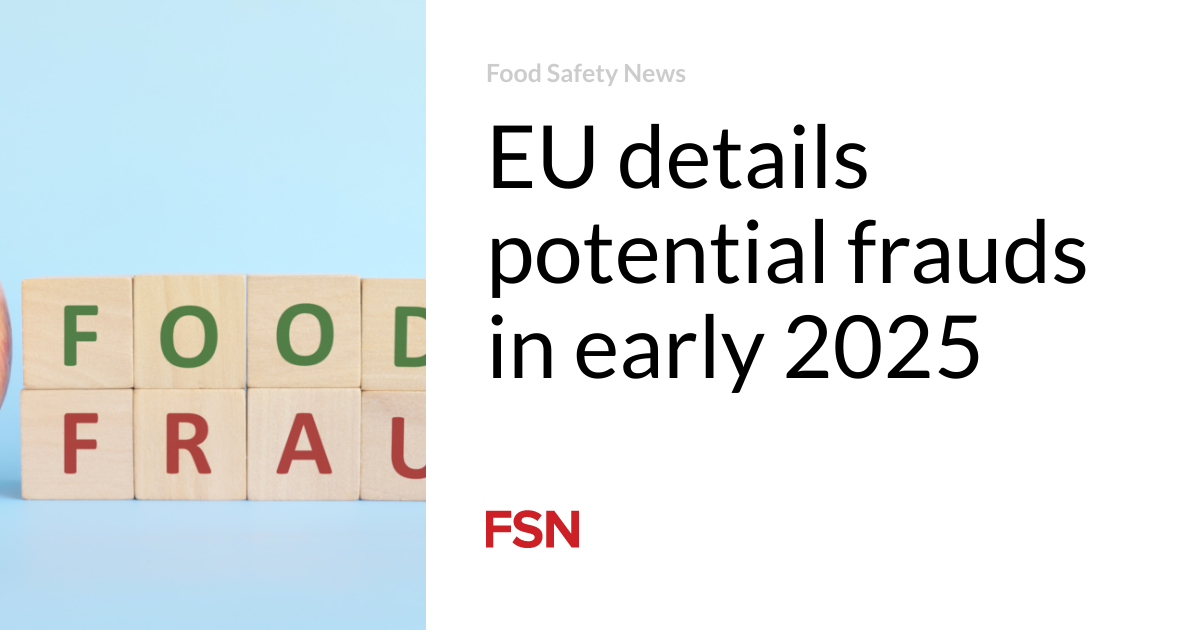
Adulteration, traceability and illegal imports are among the alleged cases of food fraud and non-compliance recently raised by European Union member states.
The number of reported issues was 220 in January 2025. This is down from 248 alerts in December 2024 and 277 alerts in January 2024.
The issues listed are potential frauds. Non-compliance may lead to investigations by EU member state authorities. The details come from a monthly report published by the European Commission.
The data includes suspected cross-border fraud topics shared among members of the Alert and Cooperation Network (ACN) and retrieved from the Rapid Alert System for Food and Feed (RASFF), the Administrative Assistance and Cooperation Network (AAC) and the Agri-Food Fraud Network (FFN).
The data covers food, feed, food contact materials, farm animal welfare, plant protection products and veterinary medicine products that end up as residues and contaminants in food and feed.
The objectives are to help national authorities put in place risk-based controls to combat fraudulent and deceptive practices, to help the food sector assess vulnerability and to identify emerging risks.
A total of 63 notices mentioned fruits and vegetables, the majority of which were non-compliant due to pesticide residues. The other food/mixed products category was second with 21 alerts. Dietary foods, food supplements, and fortified foods were third with 20 notices.
Examples of issues raised
The majority of problems were discovered during border inspections or market controls. In 22 cases, the source of detection was a company's internal control and in 12 cases, it was a consumer complaint.
Three alerts affected the United States in January: tartrazine in a pickle snack, magnesium in metallic form in dietary supplements, and tetrahydrocannabinol (THC) in organic hemp seed oil.
Cases of product adulteration included sunflower oil and other vegetable oils in olive oil from Greece and Italy. Examples of suspected adulteration included the presence of undeclared pork in chicken sausages and the addition of water to tuna.
Ethylene oxide has been detected in white pepper, ground cardamom and paprika from Türkiye, and xanthan gum from China.
Incidents of record tampering have involved gluten in gluten-free candy and gluten-free buckwheat and lactose in a lactose-free dairy spread.
The potential falsification of Romanian lamb meat documents and the unclear traceability of Danish butter were other issues raised. Illegal imports and unauthorized operators caused some problems. Several products also evaded border controls.
Chicken meat from Belgium was unfit for human consumption, and transport temperature issues were raised regarding fish and meat in the Netherlands.
Several non-conformities mentioned ingredients not authorized in the EU, health claims and pesticides exceeding maximum residue limits (MRLs).
(To subscribe to Food Safety News for free,Click here.)
